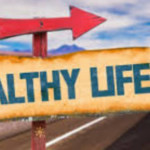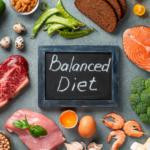The Ultimate Guide to Clean Eating for a Healthier Life
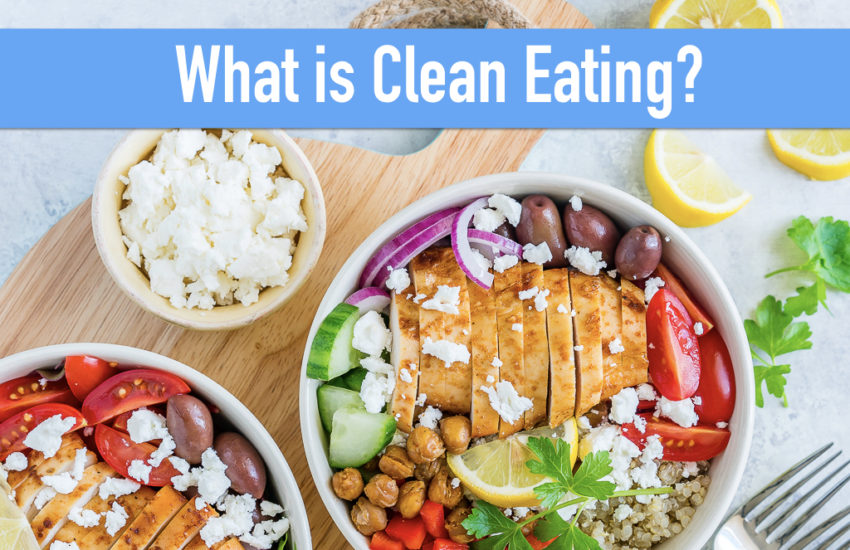
Introduction
Eating healthy is no longer a trend, it has become a necessity. In today’s world, where unhealthy food options are easily accessible, it can be a challenge to maintain a healthy diet. But with the increasing awareness of the importance of clean eating, more and more people are turning to a healthier lifestyle.
Clean eating is a way of consuming food that is close to its natural form. It involves avoiding processed foods, refined sugars, and unhealthy fats. Instead, it focuses on whole, unprocessed, nutrient-dense foods that nourish your body and provide essential nutrients. By following a clean eating lifestyle, you can achieve your health goals and feel your best.
In this article, we will provide you with the ultimate guide to clean eating for a healthier life. We will cover the basics of clean eating, its benefits, and how to start incorporating it into your lifestyle. So, let’s get started!
What is Clean Eating?
Clean eating is all about consuming food that is as close to its natural state as possible. This means avoiding processed foods that are loaded with preservatives, artificial flavors, and unhealthy additives. Instead, it involves choosing whole foods that are nutrient-dense, such as fruits, vegetables, whole grains, lean protein, and healthy fats.
Clean eating is not a diet, it’s a lifestyle. It’s about making informed choices about the food you eat and understanding the impact it has on your health. By following a clean eating lifestyle, you can improve your digestion, lose weight, boost your energy levels, and reduce your risk of chronic diseases.
Benefits of Clean Eating
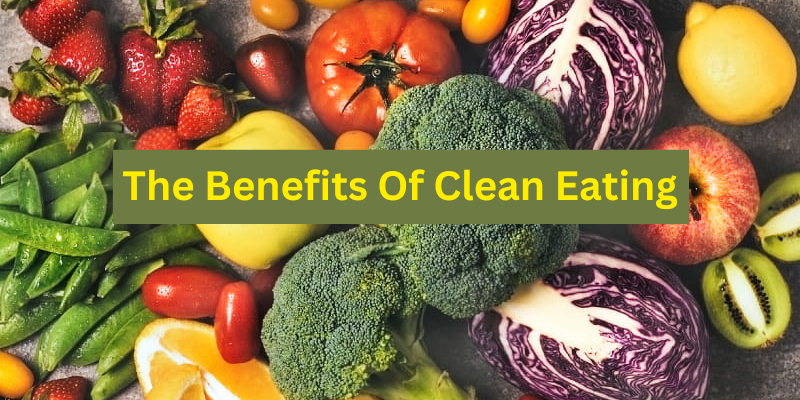
There are numerous benefits of following a clean eating lifestyle. Here are some of the most significant ones:
- Improved Digestion: Clean eating involves consuming foods that are high in fiber, which can improve your digestion and prevent digestive issues such as bloating, constipation, and diarrhea.
- Weight Loss: Clean eating can help you lose weight by reducing your intake of processed foods, which are often high in calories and unhealthy fats.
- Increased Energy: By consuming whole, nutrient-dense foods, you can boost your energy levels and improve your overall health.
- Improved Mental Health: A healthy diet can have a significant impact on your mental health. Clean eating can help reduce symptoms of depression and anxiety and improve your overall well-being.
- Reduced Risk of Chronic Diseases: By consuming whole, unprocessed foods, you can reduce your risk of chronic diseases such as diabetes, heart disease, and cancer.
How to Incorporate Clean Eating into Your Lifestyle
Incorporating clean eating into your lifestyle can be a daunting task, but it’s worth the effort. Here are some tips to help you get started:
- Choose Whole Foods: Choose foods that are as close to their natural form as possible, such as fruits, vegetables, whole grains, lean protein, and healthy fats.
- Avoid Processed Foods: Processed foods are often high in preservatives, artificial flavors, and unhealthy additives. Avoid them as much as possible.
- Cook at Home: By cooking at home, you can control the ingredients and ensure that you’re consuming whole, nutrient-dense foods.
- Read Labels: When buying packaged foods, read the labels carefully to ensure that they’re free from unhealthy additives and preservatives.
- Stay Hydrated: Drink plenty of water to stay hydrated and flush out toxins from your body.
Tips For Clean Eating
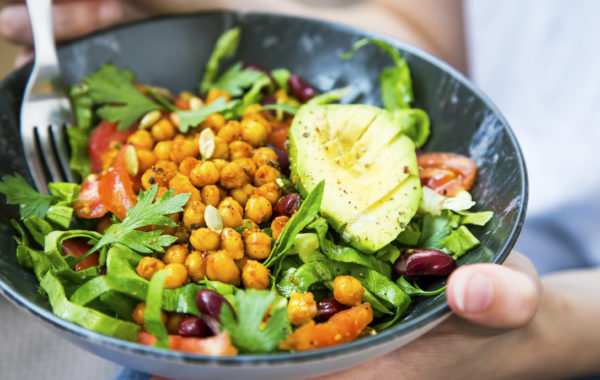
If you’re ready to adopt a clean eating lifestyle, here are some tips to get started:
Eat Whole Foods
One of the main principles of clean eating is to eat whole foods. This means choosing foods that are as close to their natural state as possible. Whole foods include fresh fruits and vegetables, whole grains, lean proteins, and healthy fats.
Avoid Processed Foods
Processed foods are often high in sugar, salt, and unhealthy fats, and they provide very little nutritional value. To eat clean, it’s important to avoid processed foods as much as possible. This means skipping the frozen dinners, snack foods, and sugary drinks and opting for whole foods instead.
Read Labels
When you do buy packaged foods, it’s important to read the labels carefully. Look for products that are low in sugar, salt, and unhealthy fats and that contain whole-food ingredients.
Plan Your Meals
Planning your meals in advance can help you stick to a clean eating lifestyle. Try to plan your meals for the week and make a grocery list based on the recipes you’ve chosen. This can help you avoid impulse purchases and make sure that you have healthy food on hand at all times.
Cook at Home
Cooking at home is one of the best ways to ensure that you’re eating clean. When you cook at home, you can control the ingredients you use and avoid processed foods and unhealthy fats. Try to make meal prep a part of your weekly routine to make cooking at home more manageable.
What Is Clean Eating For Beginners?
Frequently Asked Questions
Q: What is clean eating?
A: Clean eating is a way of eating that focuses on consuming whole, minimally processed foods that are nutrient-dense and free from added sugars and artificial ingredients.
Q: Is clean eating restrictive?
A: Clean eating can feel restrictive at first, especially if you’re used to a diet high in processed foods and sugar. However, it can also be a liberating way of eating, as it encourages a wide variety of whole, nourishing foods.
Q: Is it more expensive to eat clean?
A: Eating clean doesn’t necessarily have to be more expensive than a diet high in processed foods. You can save money by buying in bulk, planning your meals ahead of time, and choosing seasonal produce.
Q: Can you still eat out while following a clean eating diet?
A: Yes, you can still eat out while following a clean eating diet. Look for restaurants that offer whole-food-based options, and don’t be afraid to ask questions or make special requests.
Q: What are the benefits of clean eating?
A: Clean eating can lead to a variety of health benefits, including increased energy, improved digestion, better sleep, and weight loss. It can also improve your overall relationship with food, helping you feel more in tune with your body’s needs.
Conclusion
In conclusion, clean eating is a simple and sustainable way of nourishing your body with whole, minimally processed foods that are nutrient-dense and free from added sugars and artificial ingredients. By following the principles of clean eating, you can improve your overall health, increase your energy levels, and even help prevent chronic diseases.
Remember, clean eating is not about being perfect or following a rigid set of rules. It’s about making small, sustainable changes to your diet and lifestyle that can have a big impact on your health and well-being over time. Whether you’re just starting out on your clean eating journey or you’re a seasoned pro, there are always new ways to incorporate whole, nourishing foods into your diet and find joy in the process of nourishing your body.
So, take the time to explore new recipes, try new fruits and vegetables, and be kind to yourself as you navigate the ups and downs of clean eating. With a little bit of patience, persistence, and a willingness to try new things, you can make clean eating a lasting and enjoyable part of your life. Here’s to a healthier, happier you! For more information on healthy eating, check out this article The Importance of a Balanced Diet for a Healthier Life

